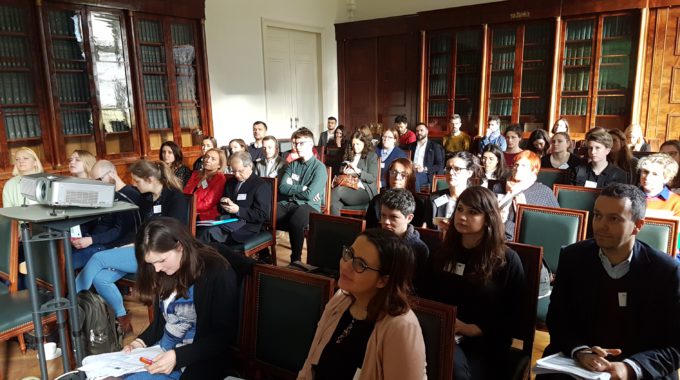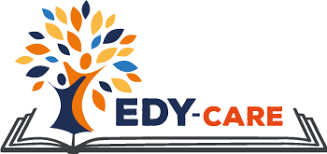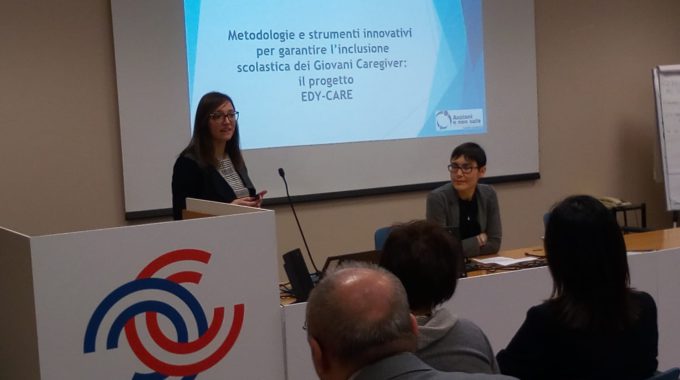
Press Release – Making inclusive education a reality for young carers: the Edy-Care Project
The right to inclusive education is enshrined in many international instruments[i].
According to a definition from UNESCO, “Inclusion is seen as a process of addressing and responding to the diversity of needs of all learners […] and reducing exclusion within and from education. It involves changes and modifications in content, approaches, structures and strategies […].”[ii]
The Edy-Care project – funded by the European Union through the Erasmus+ programme- aims to empower school professionals so that they can address and respond to the needs of young carers.
Young carers are defined as “children and young persons under 18 years who provide or intend to provide care, assistance or support to another family member. They carry out significant or substantial caring tasks, often on a regular basis, and assume a level of responsibility that would usually be associated with an adult”[iii].
Caring responsibilities can have a negative impact on young carers’ education, as they can prevent them from working productively at schools (because of the anxiety related to their caring role), maintaining a regular frequency of classes, reaching learning goals and finalising formal education of high school. The effects in the short term (under-achievement, absence and drop-outs) can have consequences in the long term (low employability due to lower educational qualifications and attitudes towards higher education).
Young carers have been identified as being at higher risk of becoming NEET (Not in Education, Employment or Training)[iv]. Lack of self-confidence and not having the necessary qualifications are the key reasons for them to become NEET.
Against this backdrop, the Edy-Care project – running from October 2017 until March 2020- aims to investigate concrete ways to maximize young carers’ learning opportunities and improve their social inclusion.
The first step is to raise awareness about young carers. Too often indeed school professionals fail to address the specific needs of young carers, not because they are unwilling to do so, but rather because they are unaware of the phenomenon and its frequency.
School professionals need to be empowered on how to identify young carers in their classes. In order to fulfil this objective, the project partners have developed a Checklist of signs that a student is a young carer[v]. They have also developed a questionnaire that students can fill in, to assess the extent of their caring tasks and the perceived impact on their educational experience (more details are available here).
Once young carers have been identified, it is important to provide them with support. In this regard, schools can play a very important role. Indeed, schools are a solid, concrete system present in every countries and young carers are there. Hence, even in the absence of young carers services or of a legislation on carers, the work done at school level is vital. Small changes in schools (i.e. adjustments in educational strategies and didactical approaches) can result in big changes for the life of young carers, allowing them to achieve their full potential and to reach their goals in life[vi].
Well aware of the vital role that can be played by schools, the Edy-Care partners are currently working on a toolkit, a handbook and an open online course (MOOC), in order to empower schools professionals with the practical knowledge on how to identify and support young carers.
All the material developed in the framework of the project will be openly accessible via the project website (and available in English, Swedish, Italian, Portuguese and Slovenian).
END
To know more about the Edy-Care project, visit the project website.
To know more about the activities implemented at national level, please contact the projects partners.
To know more about policy developments and advocacy activities on the topic of young carers, please contact Francesca Centola, Eurocarers Coordinator activities with and for young carers.
[i] The UN Convention on the Rights of the Child states that every child has the right to education (article 28).
The European Pillar of Social Rights goes further, focusing on the right to quality and inclusive education (Principle 1). The Millennium Development Goal n. 4 aims to achieve inclusive and equitable quality education for all.
[ii] Guidelines for Inclusion, UNESCO, p. 14, 2005.
[iii] Becker, 2000.
[iv]A report by the Audit Commission in UK found that the likelihood of young adult carers being NEET for six months or more was twice that of their peers (Audit commission, 2010. Source: Carers Trust).
In Italy, the Youth Guarantee Report has highlighted that the responsibilities related to the care are the first reason of inactivity of the young NEET between 15 and 29 years.
The trends at national level are confirmed at European level. According to Eurofound data, 15,4% of young people not in employment, education or training are in this situation because they are caring for children or incapacitated adults or have other family responsibilities.
[v] Developed from: Supporting Young Carers in School: A Step-by-step Guide for Leaders, Teachers and Non-teaching Staff, Step 7, Tool 1: Checklist of signs a pupil is a young carer, Carers Trust and the Children’s Society, available at https://professionals.carers.org/step-step-guide-raising-awareness-schools-staff-about-young-carers
Reproduced with kind permission from Carers Trust.
[vi] The work done at school can trigger – with time- a broader support system for young carers (in a bottom up way).





